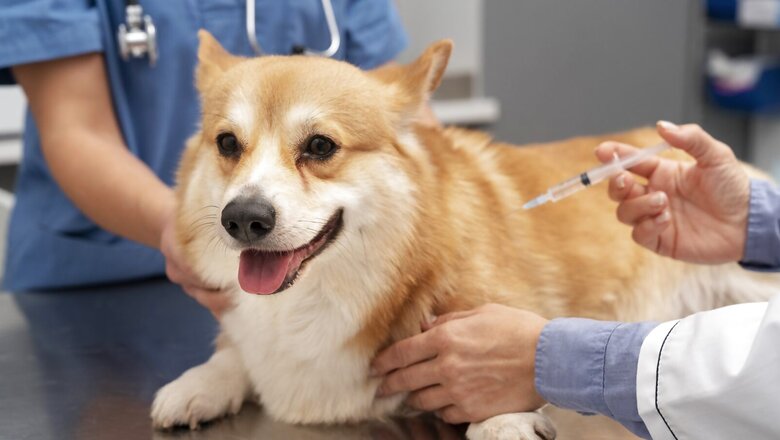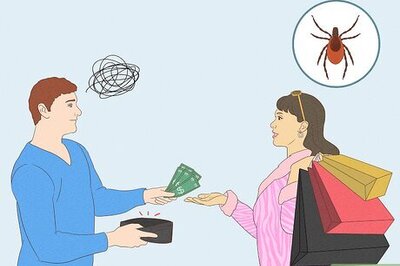
views
Pets are more than just animals; they are beloved members of our families. As pet owners, it is our responsibility to ensure that they receive proper care and attention. One crucial aspect of pet care is vaccination. Vaccination is an essential tool in protecting our furry friends against serious and potentially deadly diseases. Dr. Deepak Saraswat, Head Veterinarian, Zigly discusses the importance of vaccination for pets and the various benefits it provides.
- Protection against infectious diseasesPets are prone to many infectious diseases that can be life-threatening if left untreated. Vaccination is the most effective way to prevent these diseases from infecting your pet. Vaccines contain a small amount of the disease-causing agent or its parts, which triggers the pet’s immune system to produce antibodies against the agent. These antibodies protect the animals from the disease, making them less susceptible to infections. Some of the common infectious diseases that our furry friends can contract and that can be prevented through vaccination include rabies, parvovirus, distemper, feline leukemia, and canine influenza. Vaccinating your pet against these diseases can save their life and prevent unnecessary suffering.
- Preventing the spread of diseases In addition to protecting your pet, vaccination also plays a crucial role in preventing the spread of infectious diseases in the community. By vaccinating your pet, you are helping to create herd immunity, which means that a large enough proportion of the population is vaccinated to prevent the spread of the disease. Herd immunity is particularly important for animals that cannot be vaccinated, such as very young or very old pets, or those with weakened immune systems. By vaccinating your pet, you are helping to protect these vulnerable animals and preventing the spread of diseases in the community.
- Lower healthcare costs Vaccination is a cost-effective way to protect your pet’s health. The cost of vaccines is much lower than the cost of treating a disease once your pet has contracted it. Some infectious diseases, such as parvovirus or distemper, can require expensive treatments, hospitalization, and supportive care. Vaccinating your beloved paw buddy against these diseases can save you a significant amount of money in the long run. In addition to saving money on treatment costs, vaccination can also help prevent the spread of diseases in the community, which can help reduce the overall healthcare costs for pets and their owners.
- Protecting human health Some infectious diseases that affect pets can also be transmitted to humans. For example, rabies is a viral disease that can be transmitted to humans through the bite of an infected animal. By vaccinating your pet against rabies, you are also protecting yourself and your family from this deadly disease. In addition to rabies, there are other diseases that can be transmitted from pets to humans, such as leptospirosis, Lyme disease, and ringworm. Vaccinating your pet against these diseases can help reduce the risk of transmission to humans and promote public health.
Vaccination is an essential aspect of responsible pet ownership. It helps protect your pets from various infectious diseases, prevents the spread of diseases in the community, and promotes overall health and wellbeing. By vaccinating your furry friend, you are not only protecting their health but also contributing to the larger goal of promoting public health. It is important to work with your veterinarian to create a vaccination schedule that is appropriate for your pet’s age, lifestyle, and health status. Together, we can help create a healthier and safer community for pets and their owners.
Read all the Latest Lifestyle News here


















Comments
0 comment